Deviation from the norm of stomach acidity in one direction or another causes painful sensations, which are similar in many ways. Health problems are caused by disruption of the digestive process - the production of enzymes decreases, food is not fully digested and nutrients are not absorbed by the body. Anemia occurs and the possibility of developing allergic reactions and autoimmune diseases.
With low acidity, stomach cancer appears 3 times more often than with high acidity. General immunity decreases.
Symptoms of the disease
General signs of acidity disorders:
- unstable stool;
- problems with bowel movements;
- increased gas formation;
- heartburn;
- pain in the pit of the stomach;
- feeling of nausea.
The fact that the acidity level is reduced is indicated by certain signs:
- appetite decreases, it seems that the stomach is full for a long time after meal;
- weakness appears;
- there are fragments of undigested food in the stool;
- the breath smells unpleasantly of rot, even if there are no problems with teeth, gums and tonsils;
- stomatitis often appears.
Bacteriological culture of stool reveals increased activity of Candida fungi, an opportunistic flora.
Deterioration of health
Since food lingers in the stomach without being digested, the process of rotting begins in it - the breath begins to smell unpleasant, belching smells like rotten eggs. Because of this, communication problems arise; people instinctively try to avoid contact.
At home, you can independently determine the state of acidity.
To do this, just do simple tests with soda, lemon and litmus:

- To quickly achieve effect "carbonation" water, you need to dissolve a quarter teaspoon in half a glass of regular cool water baking soda. While the liquid is fizzing, you need to drink it in one gulp. If the acidity is low, belching will not appear at all or will occur after 5 minutes;
- A lemon slice briefly sucked does not cause increased salivation;
- Litmus paper, which is placed on the tongue in the morning, turns blue.
If you suspect low acidity, you should consult a doctor to treat the condition, and to relieve painful symptoms, change your diet for now.
Medicines will not solve the problem of how to increase stomach acidity without a diet - you must adhere to a special diet.
Medicines to increase stomach acidity
There is no single medicine to increase stomach acidity; complex therapy is used to stabilize the condition.
Secretion of hydrochloric acid stimulated by prescribing the following drugs:
- "Pentagastrin";
- "Cytochrome C";
- "Etimizole";
- "Limontar".
For the same purpose, histaglobulin and calcium gluconate are injected:
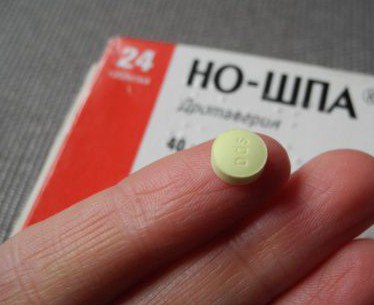
- Replacement therapy is used - the patient takes Acidin-pepsin or Pepsin, Abomin, Pepsidil, Panzinorm. During meals, it is recommended to drink hydrochloric acid or gastric juice enzymes;
- The pain must be relieved; for this, “No-spa” or other antispasmodics are used;
- The feeling of nausea is eliminated by Cerucal, Clometol or "Metoclopramide";
- Very often, against the background of insufficient production of gastric secretions, Helicobacter pylori is activated. In this case, antibiotics are introduced into therapy - 2 or 3 groups at the same time. The most commonly used is a complex of amoxycycline and tinidazole.
Drug therapy must be supplemented with immune drugs and vitamin complex high in folic acid.
Increasing stomach acidity with folk remedies
How can you increase the acidity of the stomach using folk remedies, if the medications are not credible and are too “scary” side effects described in the instructions?
There is a lot of advice in folk medicine on how to stabilize the condition, but it is not recommended to neglect treatment. The doctor prescribes medications individually and unsuitable tablets, after which the condition worsens, can always be replaced with drugs of a similar effect.
It is advisable to increase the acidity of the stomach folk remedies against the background of drug treatment under the supervision of a physician.
The range of plant materials from which tea is brewed to increase acidity is quite wide.
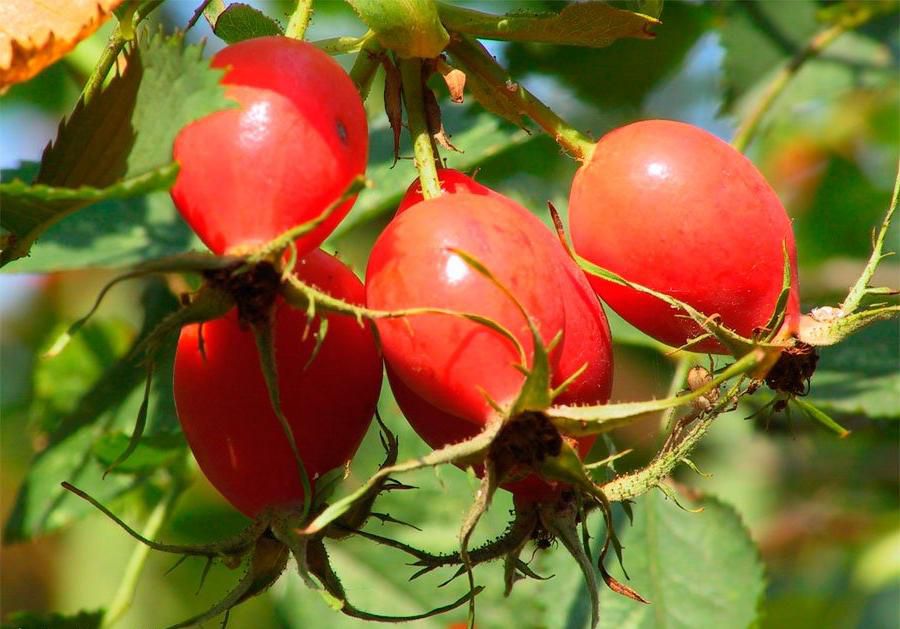
- buckthorn branches;
- three-leaf watch, plantain, blueberry leaves;
- rhubarb, gentian, calamus root, elecampane;
- swamp cudweed, yarrow, St. John's wort, centaury, wormwood, immortelle, wormwood;
- infusion of rose hips and berries: blueberries, lingonberries, rowan.
If any component of the drink is not suitable, it can be ignored.
The effect of the product is the replacement or removal of one ingredient of great importance they do not provide.
In order for food to be better absorbed, it is advisable to drink a tablespoon of carrot juice before meals, and black currant juice after meals. Instead of carrot juice, you can use aloe juice - a teaspoon. In this case, currant juice is not needed.
Honey therapy is effective. Drink a quarter glass 40 minutes before meals cold water, in which a tablespoon of honey is dissolved.
To increase stomach acidity at home, you need to eat right. Medical diet - table according to Pevzner No. 2.
Food is consumed only warm, its consistency is puree, side dishes are slimy porridge. Frying and baking are excluded - only cooking and steaming of products. It is advisable to master the technique of making soufflé.
List of foods that can be consumed:
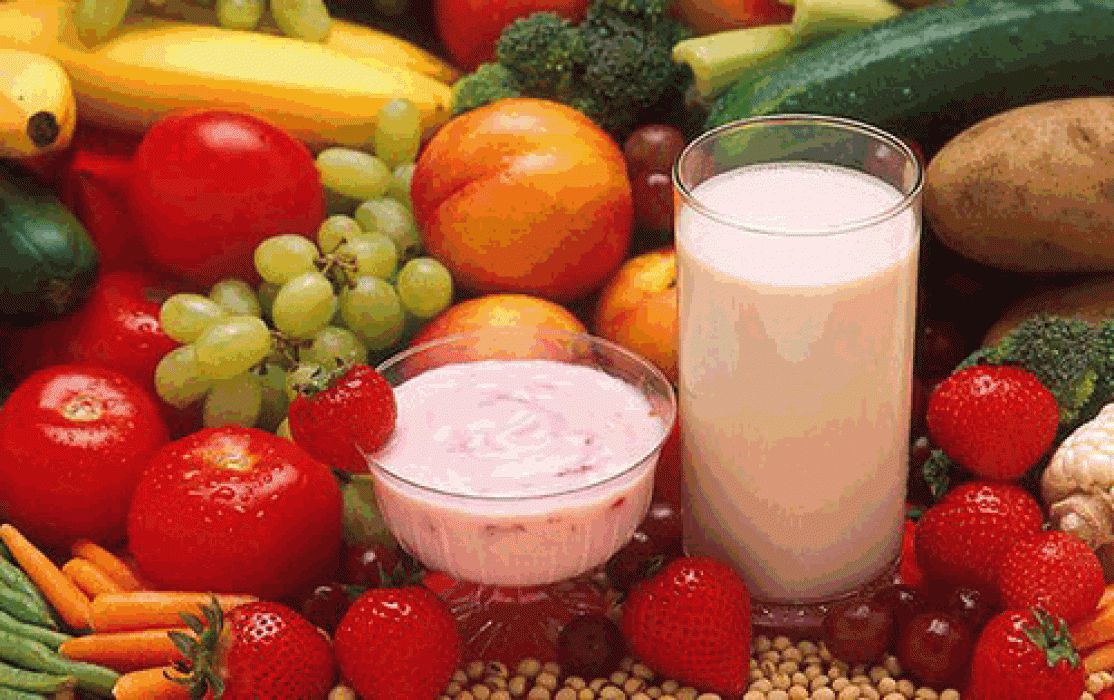
- fermented milk – hard cheeses in limited quantities;
- eggs - only omelet or soft-boiled;
- meat and fish - low-fat - in the form of soufflé, minced meat dishes, jellied meat and aspic;
- bread without crust, baked goods without yeast;
- vegetables that do not have a strong taste in any form;
- herring soaked in milk - in small pieces once a day;
- porridge - except pearl barley;
- vegetable and butter with limitation.
The drinks are as follows: tea with milk or lemon only, weak cocoa with milk, berry juices diluted in half with water, kefir, rose hip decoction.
Excluded from the diet: pickles, smoked foods, marinades, fatty foods, chocolate, sweet fruits and drupes, coarse dried fruits - figs and dates, legumes. From vegetables - those with a sharp taste: radishes, radishes and the like.
After the condition has been normalized, medications are stopped, and the course of traditional therapy is repeated every 4 months. The diet is expanded gradually, analyzing the body’s reaction to the introduction of new products.
If signs of deterioration in health appear, you need to return to your previous diet.
Most diseases gastrointestinal tract associated with impaired production of hydrochloric acid in the body.
Reduced fermentation occurs due to impaired activity of the glandular organs. With low stomach acidity, a person experiences severe discomfort. It can appear due to poor nutrition and a disordered lifestyle.
In addition to drug therapy, patients are often concerned with the question of how to increase stomach acidity at home.
The concept of low acidity
Stomach acidity is the main indicator of acid content in gastric juice. Gastric juice, in turn, is an integral part of digestion.
When acidity is within normal limits, it is ensured good protection from pathogens trying to penetrate the digestive system.
High and low acidity lead to various diseases. The latter case is most often diagnosed in older people.
Deviation of stomach acidity from the norm causes pain. Health problems occur as a result of disruption digestive process, that is, the production of enzymes decreases, food ceases to be completely digested and nutrients are not absorbed by the body.
Anemia, allergies and autoimmune diseases develop. The immune system weakens. With reduced gastric acidity, the risk of cancer increases by 3 times.
The following symptoms indicate that stomach acidity is reduced:

These symptoms can also be observed in children.. Low acidity in childhood is not uncommon. A periodic increase in temperature to 37 °C is also added to this list.
At the slightest suspicion of a disease, you should consult a doctor who will tell you how to increase the acidity of the stomach. Before this, you need to stick to a diet to get rid of unpleasant symptoms.
Reasons for decreased stomach acidity include:
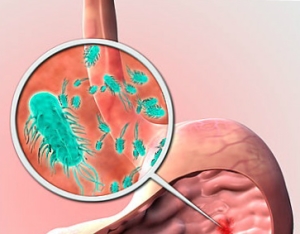
Low acidity significantly impairs the breakdown of proteins, fats and beneficial microelements.
Their deficiency leads to the development of various ailments, dry skin, thinning hair, splitting nails, and acne.
Therefore, it is so important to contact a gastroenterologist in a timely manner, who will prescribe comprehensive treatment, including drug therapy and folk remedies.
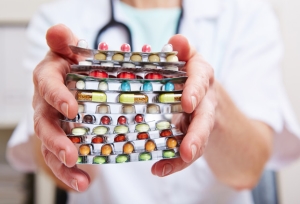 Medicines are prescribed by a doctor after a detailed laboratory and clinical examination.
Medicines are prescribed by a doctor after a detailed laboratory and clinical examination.
Special medications will help solve the problem of increasing stomach acidity. Now their choice is not so great.
In advanced forms of the disease, it is quite difficult to achieve a positive effect. If the situation is not critical, then, as a rule, herbal and natural-based drugs are prescribed.
Tinctures of fennel, mint, wormwood, and calamus act as medicines.. They promote the secretion of gastric juice. Also, acidity can be increased with specially developed hormones (for example, histamine, heparin).
For an immediate effect, you can use capsules with hydrochloric acid, which will help quickly digest food.
Please note that medications must be prescribed strictly by a gastroenterologist. Otherwise, you can apply more harm body. Many medications have contraindications and cause serious side effects.
Increasing stomach acidity at home
Treatment at home should be started after consulting a doctor. You can increase acidity levels by following a therapeutic diet.
Dietary changes play a key role in treatment. Some recipes also work well traditional medicine and mineral water therapy. Let's look at each of them in more detail.
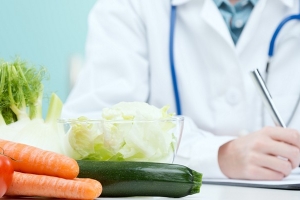 For better absorption of food, it is recommended to drink 1 spoon of carrot juice before meals, and after eating - black currant juice.
For better absorption of food, it is recommended to drink 1 spoon of carrot juice before meals, and after eating - black currant juice.
Honey therapy also has a beneficial effect. In a glass of cold water you need to dissolve 1 tbsp. l. honey and drink half an hour before meals.
If you do not monitor your diet, acidity cannot be normalized. A medical diet according to Pevzner No. 2 is recommended for patients.
Food should be consumed exclusively warm and in puree form. Slimy porridges are ideal as side dishes. Baking and frying are excluded - only steaming and cooking of products. It is advisable to learn the technique of making soufflé.
If you have low acidity, you can eat the following foods:
- Fermented milk products (kefir, hard cheeses).
- Eggs (soft-boiled or omelet).
- Bread crumb, baked goods without yeast.
- Low-fat varieties of fish and meat (in the form of minced meat, soufflé, aspic, jellied meat).
- Vegetables that do not have a strong taste.
- Porridge (with the exception of pearl barley).
- Butter, vegetable oil.
- Tea with lemon, cocoa with milk, rosehip infusion, berry juices.
A sample menu for a day might look like this:
- Breakfast – honey water and curd mousse.
- Second breakfast – baked pumpkin.
- Dinner - vegetable soup, boiled chicken.
- Afternoon snack – cheesecake with cottage cheese, berry compote.
- Dinner – milk buckwheat porridge.
How can you increase stomach acidity using folk remedies? This method effective only at an early stage of the disease. Traditional medicine is recommended to be used as an additional therapy to medication.
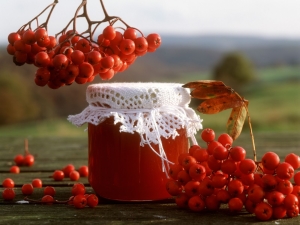
Excellent for increasing gastric acidity and secretion of tinctures from medicinal herbs: aloe, anise, calamus, viburnum juice, dandelion root, plantain, eleutherococcus.
You should also not forget about mineral water therapy. Essentuki No. 17 and No. 4, Slavyanovskaya, Izhevsk waters are well suited. They should be drunk 10 minutes before meals in small sips. The course of treatment lasts 1-2 months. You must take 3 courses per year.
Low acidity in the stomach brings a lot of inconvenience to a person’s life.. In addition, it can cause various diseases. To treat it, you need to contact a gastroenterologist.
After the patient’s condition has normalized, drug therapy ends. Traditional medicine courses must be taken every 4 months for prevention purposes.
In treatment main role diet plays. If you do not follow it, it is not possible to normalize your condition. Be healthy!
Gastritis is an inflammatory disease of the stomach, provoked by external or internal negative factors. indicates a disruption in the flow of gastric juice, a decrease in its volume, which further affects the underlying disease. The weakened secretory function of the stomach leads to the inability to break down food, and therefore gastritis with low acidity is accompanied by pain, digestive pathology and other unpleasant symptoms.
Inflammatory disease of the organ wall can occur primary or secondary, depending on the causative factor. The main risks are poor diet, exposure to toxic elements, and certain medications (Kvamatel). This disease must be treated together with a gastroenterologist, who will prescribe medications(Iberogast), and will also recommend dietary nutrition and methods of treatment with folk remedies.
Clinical symptoms of gastritis are divided into primary and secondary (after taking the drug Kvamatel). The primary manifestations of the inflammatory disease include dyspeptic disorders, rumbling in the abdomen, heaviness and discomfort. Later, during the period, severe pain appears, and the patient takes a forced position, bending his legs under him, lying on his side.
Secondary signs of gastritis with low acidity:
- general malaise, feeling of weakness, loss of appetite;
- decreased activity, insomnia, apathetic state;
- rapid heartbeat, metal bite in the mouth;
- increased salivation, intolerance to dairy products.
Gastritis with reduced secretion occurs quite quickly and becomes a chronic process, when the symptoms are less pronounced, but the pathological process in the stomach only intensifies.
The patient is forced to constantly take painkillers and anti-inflammatory drugs: Kvamatel (only as prescribed by a doctor, has contraindications for reduced secretion), Iberogast.
Low stomach acidity: symptoms
The reduced secretory function of the stomach does not go away without a trace for the patient; symptoms of nausea, dizziness, and constant discomfort in the stomach are added. This disease must be treated immediately, since the chronic process practically eats away the walls of the stomach.
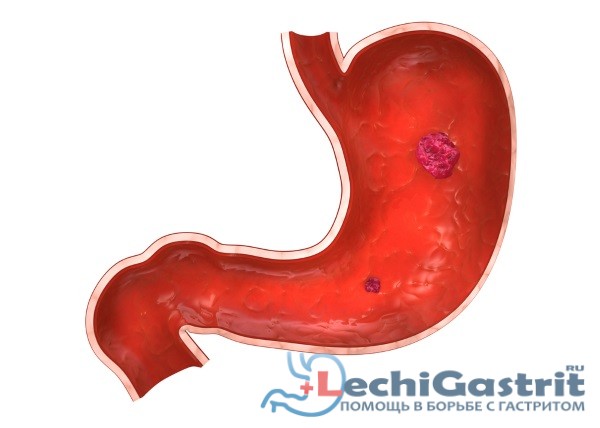
Typical gastritis with low acidity is characterized by problems with defecation: the patient begins to have frequent bowel movements, belching with sharp unpleasant smell, vomit. Associated symptoms of the disease include dry mouth, changes in taste preferences, and loss of appetite. It is very difficult for the patient to force himself to eat properly, since the loss of appetite is accompanied by nausea and a gag reflex for certain foods.
The transition to a chronic process can be observed within a few months if acute stomach disease is not treated with folk remedies and medications.
How to treat gastritis?
The main goal is to normalize nutrition and prescribe a therapeutic diet. The gastroenterologist also prescribes medications (Kvamatel in rare cases, Iberogast) to normalize gastric secretion and improve its functioning.
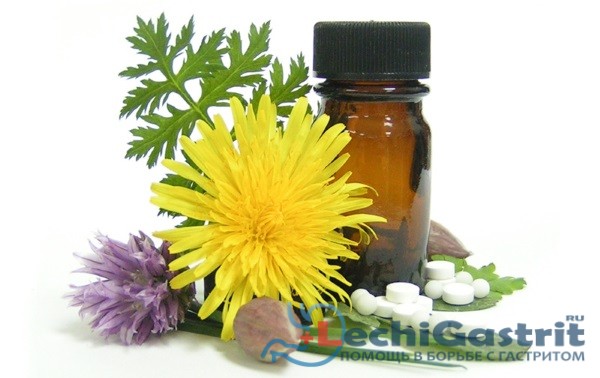
With low acidity.
- Stimulation of the secretory function of the stomach: treatment with Histaglobulin, Proserin, Limontar.
- Treatment with vitamins: multivitamin complexes, folic acid. This allows you to normalize metabolic processes, improve digestion by strengthening the immune system.
- Stimulation of secretory function: drugs Pepsin, gastric juice enzymes, Panzinorm.
- Normalization of peristalsis: the drug Iberogast is of particular importance. It relieves pain and hypersensitivity of the gastric mucosa. Iberogast is represented by a complex of medicinal plants that normalize the tone of smooth muscles and normalize peristalsis.
- Medicines to prevent exacerbation and transition to low acidity: you can take Iberogast, Kvamatel, antispasmodics.
These medications (with the exception of Kvamatel) can be taken at home, but only under the supervision of a doctor, and treatment with folk remedies is necessary to enhance the defense mechanism and relieve inflammation.
With special care, the doctor can prescribe Kvamatel, but self-medication with this drug is prohibited.
Home treatment for gastritis with low acidity
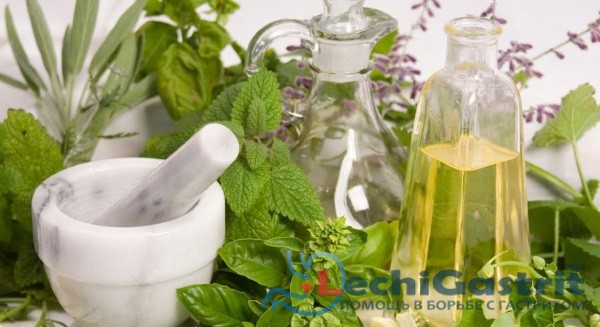
Regardless of what folk remedies are used for treatment, you must constantly take the above-described drugs Iberogast and Pepsin, which normalize peristalsis and relieve pain. Doctors recommend herbal treatment - herbal medicine, which can help relieve stomach inflammation.
Non-drug home treatment includes the use of tinctures, decoctions, and changes in diet. You need to take enveloping medications, avoid stress, and do not forget to be regularly examined by a gastroenterologist.
It is important to know
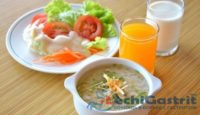
Often accompanied by both increased and decreased acidity of gastric juice. In case of insufficient secretion of hydrochloric acid in the stomach, eating food causes a feeling of heaviness and discomfort in the epigastrium, belching, and possibly bloating. Often healthy people after stress or when eating improperly “on the go,” similar manifestations are observed.
In addition to directly participating in the digestion of food, acidity in the stomach destroys pathogens and thereby prevents intestinal infections, and also activates enzymes (pepsin) for further breakdown and absorption of proteins. Protein and iron deficiency leads to anemia, chronic fatigue and a high risk of acute and chronic infections.
Diet that increases stomach acidity
There are a number of foods that stimulate the secretion of gastric juice. Strong black tea and coffee, chili pepper or horseradish root can short time increase gastric acidity, but you should not abuse these products so as not to provoke gastritis or stomach ulcers.
Also have a positive effect on low acidity:
- honey (half a teaspoon) - in in kind or dissolved in warm water 30 minutes before each meal. It is also recommended to use a mixture of honey and oil before meals,
- citrus fruits - in addition to their own high acidity, they cause acid secretion in the body,
- sour fruits (kiwi, apples) and fruits (currants, gooseberries),
- sour drinks - jelly and compotes (sea buckthorn and rosehip),
- , which is not recommended to be abused.
Introducing apricots into the patient's diet - fresh, dried and/or in the form of apricot juice, half an hour before meals is optimal for stimulating stomach acidity.
Fleshy grape varieties have a beneficial effect on low acidity; it is advisable to eat 200 g of berries before meals.
Lingonberries (a teaspoon) or lingonberry water (half a glass) not only increases gastric acidity, but eliminates the possibility of vitamin deficiency.
Vegetables that normalize low acidity include cucumbers, carrot juice and dishes containing beans - soups, purees, salads, dough fillings.
Fresh green spices - parsley, fennel, cilantro, garlic, green onions, herbs are recommended for low acidity.
The use of sorrel in the preservation of cucumbers, zucchini, squash instead is essential for long-term use.
In the cold season, an old recipe is used to activate gastric acidity - turnip puree with vegetable oil.
Stimulates gastric secretion also when taken meat dishes However, the patient’s menu should be agreed upon with the attending physician, so as not to harm the patient’s health and well-being with fatty and animal foods.
A rationally selected diet and list of dishes will help normalize the acidity of gastric juice and relieve its unpleasant manifestations.
Increasing the acidity of gastric juice with folk remedies
Schisandra - seed powder (2 g) or juice from its fruits (a tablespoon) is taken half an hour after meals, normalizes acidity and relieves pain in the stomach.
After grinding in a meat grinder, leave equal parts (0.5 kg each) of sour apples and red currants and 2 kg of cabbage in a dark place in a glass container. When the mixture begins to ferment, it should be strained and take 100 g of cabbage three times a day before meals.
Combine red rowan (500 g) with sugar (300 g), after 5 hours, boil for half an hour, drink before meals. 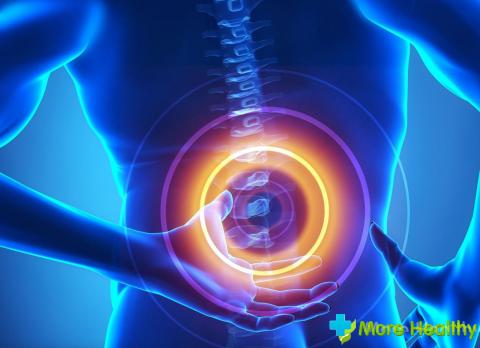
A mixture (1 tablespoon) of wormwood and yarrow herbs in a ratio of 4 to 1, pour boiling water (1 glass), strain after half an hour and use 3-4 times a day.
Tincture of unripe nuts - 10-15 pieces are crushed, combined with 0.5 liters of vodka, left tightly closed jar for 2 week. Strain and drink 1 teaspoon of the tincture, diluting it in a partial glass of water. In addition to increasing acidity, nut tincture has an analgesic effect.
Plantain in the form of salads or plantain juice helps increase acidity.
Dissolve apple cider vinegar (1 teaspoon) in half a glass of water and apply in the morning after waking up.
Increase the secretion and acidity of gastric juice with a mixture of herbs and/or tinctures of aloe, calamus, anise, eleutherococcus, dandelion root, viburnum juice and chokeberry.
Medications under the supervision of a physician help optimize gastric acidity in the early stages of the disease.
Mineral water therapy
Mineral water with low acidity should be drunk slowly 10 minutes before meals or during meals. 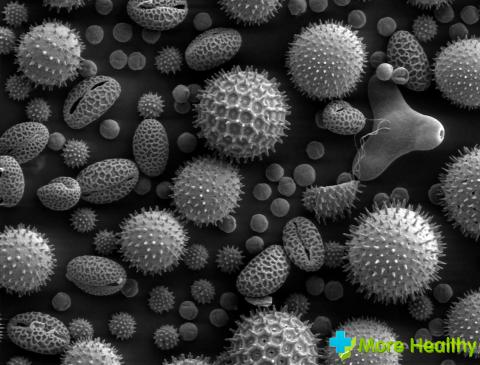
For treatment use:
- Slavyanovskaya and Smirnovskaya waters are among the popular waters of the Zheleznovodsk resort. They are most similar in composition to the waters of the Karlovy Vary resort; they contain sulfates, bicarbonates, chlorides, magnesium and calcium salts. The duration of use is generally 30-35 days at a dose of 5 to 8 ml per kg of patient body weight, the frequency includes 3 courses per year.
- Essentuki No. 4 and No. 17 - contain sodium, magnesium and potassium cations, as well as boron, bromine and other active substances, and have a hydrogen sulfide odor. They are close in composition to the waters “Naftusya” and “Undorskaya”. Take water in courses of 4-6 weeks, daily dose from 50 to 200 ml. Water is used to increase acidity room temperature, drink slowly in small sips 30 minutes before meals.
- Izhevskaya - belongs to the chloride-sulfate magnesium-sodium-calcium waters. It is used heated as prescribed by a doctor, in courses lasting three or four weeks. It promotes the secretion of gastric juice and increases its acidity.
It should be remembered that medicinal mineral water, in addition to the therapeutic effect, the appropriate course of treatment and acceptable dosage have contraindications, so it is recommended to take them, taking into account the doctor’s instructions for maximum therapeutic effect.
Drug treatment for low acidity
Medicines are prescribed by a gastroenterologist after a detailed clinical and laboratory examination, including determination of gastric acidity. There are many to reduce acidity; to increase it, the choice is not so great. It is recommended to use hydrochloric acid preparations and medications that promote its secretion.
Plantaglucide contains plantain extract, stimulates the secretion of juice in the stomach, and has an anti-inflammatory and analgesic effect. I dissolve the drug in boiled water and take one teaspoon three times a day, half an hour before meals. 
Ortho Taurine Ergo 1 capsule 2 or 3 times a day, preferably on an empty stomach.
Limontar - the drug contains amber and citric acid which promote the secretion of gastric juice, use 1 tablet 2-3 times a day.
They also use drugs that contain:
- wormwood - Wormwood extract, Tincture 20% and Infusion of wormwood - the bitterness of wormwood stimulates gastric and pancreatic secretion, and also has a choleretic effect;
- peppermint - Peppermint tincture - improves digestion,
- Fennel fruit tincture - stimulates the secretion of the digestive organs.
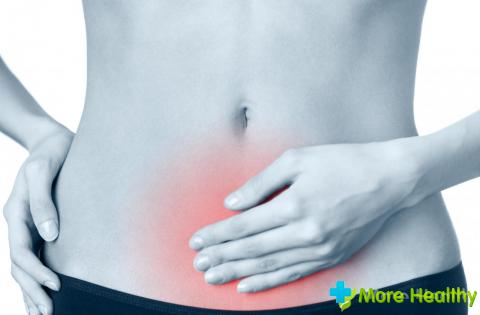
Thus, reduced acidity of gastric juice is accompanied by unpleasant symptoms of heaviness from the digestive tract, contributes to infectious diseases and anemia. To eliminate the problem, it is necessary to adjust the patient’s diet, use products that stimulate secretion and increase the acidity of gastric juice.
According to the doctor’s prescriptions, the use of appropriate (Essentuki, Slavyanskaya, Smirnovskaya, Izhevskaya) and traditional medicine in the initial stages will help normalize the condition. If necessary, the patient is recommended to use medications, but should not self-medicate. Timely diagnosis and adequate therapy will preserve health and prevent unwanted complications.

